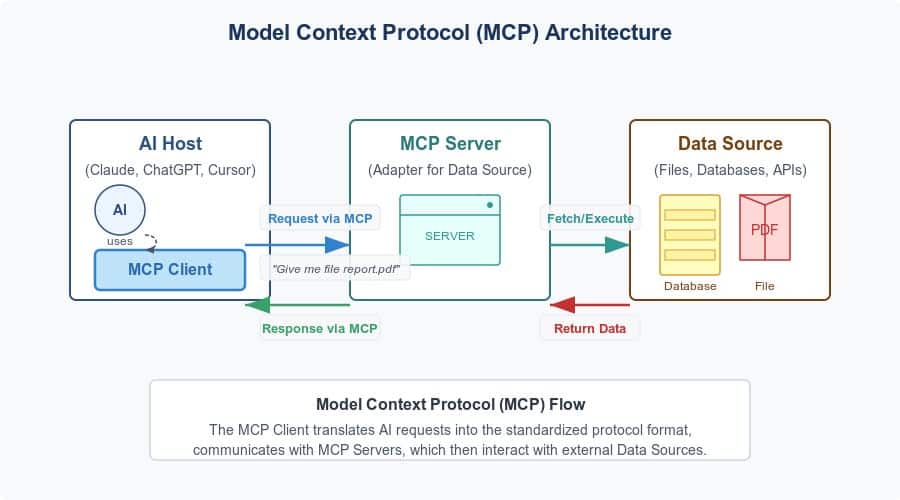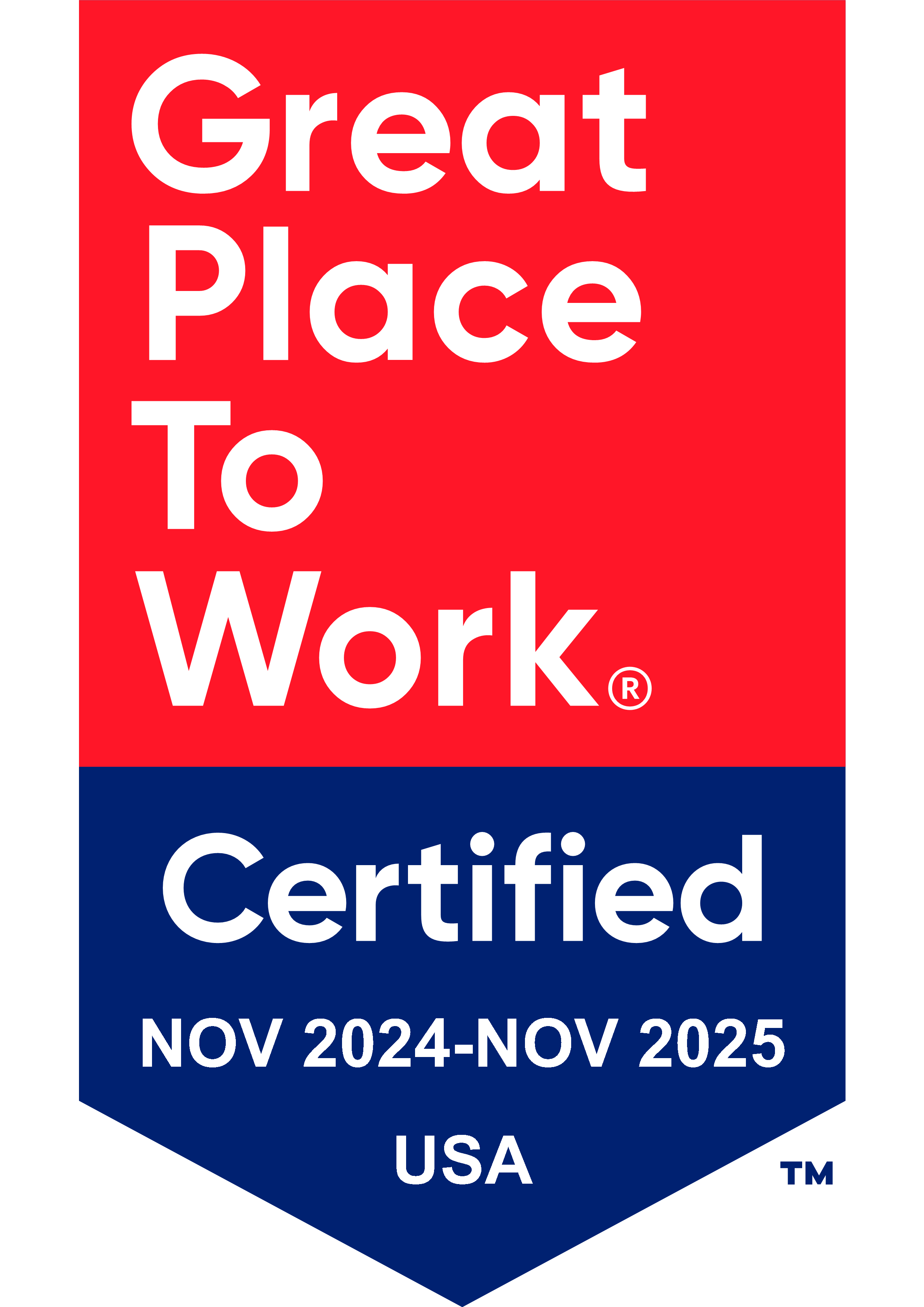As federal agencies continue to explore the transformative potential of artificial intelligence, the need for robust, secure, and context-aware AI systems has never been more urgent. The government sector operates under a unique set of constraints such as privacy, transparency, reproducibility, and compliance which often limit the use of standard commercially available AI solutions. To truly harness the power of large language models (LLMs) within these environments, we need tools that go beyond prompt engineering and retrieval augmentation.
That’s where the Model Context Protocol (MCP) comes in.
MCP is an open specification developed by Anthropic, later adopted by other industry giants such as OpenAI, Microsoft, and others, that standardizes how language models interact with external tools, databases, and context sources. It introduces a structured way to extend the capabilities of LLMs by giving them safe, controlled access to real time data, secure systems, and institutional knowledge without compromising on security or compliance. While not limited to them, this is especially critical in multi-agent architectures, where multiple specialized agents must collaborate on tasks. MCP ensures those agents connect to external systems in a secure, standardized, and auditable way. As AI continues to mature, especially in mission-critical government applications, MCP is poised to become a foundational layer for scalable, trustworthy deployments.
Why the Government Needs MCP Now
Government agencies, from healthcare to national security, are increasingly exploring use cases for generative AI from drafting policy documents to summarizing case files, and from responding to public queries to analyzing massive datasets. However, several critical barriers remain:
- Context Limitations: LLMs operate within a fixed context window and cannot natively “know” agency-specific processes, historical cases, or secure databases.
- Security & Compliance: Traditional API based plugins for LLMs may expose sensitive systems or fail to meet rigorous compliance frameworks like FedRAMP or NIST 800-53.
- Auditability: Generative responses are difficult to trace back to authoritative sources, making it hard to verify outputs or explain decisions.
MCP addresses all of these pain points. By serving as a structured, schema-driven bridge between the LLM and its environment, MCP allows agencies to integrate AI into secure workflows without exposing internal systems or sacrificing auditability. Tools and data are registered with the MCP server and made accessible to the LLM in a way that’s fully trackable, testable, and revocable.
In other words, MCP doesn’t just plug AI into your data. It wraps that connection in structure, safeguards, and accountability.
Use Cases for MCP in Government
Analytica recommends applying MCP for the following use cases:
- Secure Document Summarization and Drafting: Rather than exposing full case records to a cloud based LLM, MCP can facilitate controlled summaries using only relevant tools and redacted data.
- Policy Compliance Assistants: MCP can integrate with regulatory databases and legal toolkits to ensure that generative responses are compliant with current federal and state laws.
- Human-in-the-Loop Workflows: MCP integrates human oversight into AI systems by prioritizing feedback and approvals. This allows an analyst to pause workflows to review, modify and approve AI generated outputs to ensure accountability while still accelerating throughput.
- Knowledge Extraction Across Silos: Agencies often maintain fragmented data across systems. Using MCP enabled tools, LLMs can query and synthesize across these silos in a transparent and secure manner.
How Analytica Is Leading the Way
Our team at Analytica has long been at the forefront of delivering secure, scalable AI solutions to federal agencies. With a track record of successful engagements across civilian, defense, and health sectors, we are uniquely positioned to drive MCP adoption in government contexts.
Over the past year, we have worked on building prototypes and demos using MCP to safely orchestrate complex workflows, connecting models to tools like PDF parsers, SQL databases, external data sources, and custom analytics services. We’ve already seen firsthand how MCP enables more accurate, faster, and safer model outputs. By reducing hallucinations, enforcing data boundaries, and preserving context over long interactions, MCP supports exactly the kind of high stakes work our clients rely on us for.
Moreover, because MCP is tool agnostic and LLM neutral, we’re able to adapt our implementations to our clients’ preferred cloud providers or on prem environments. This flexibility is critical in a world where no single LLM or vendor dominates every scenario.
What’s Next
As agencies begin drafting their Generative AI strategies and evaluating pilot projects, MCP should be top of mind. It’s not just a developer tool, it’s an architectural philosophy that aligns AI deployments with the values of accountability, security, and interoperability.
Analytica is actively partnering with government stakeholders to scope out MCP enabled solutions. Whether you’re developing a secure chatbot for agency specific tasks or needing to implement existing AI models to assist with workflow, we’re here to help translate the promise of generative AI into concrete, mission aligned outcomes.
Want to learn more about how we can help you implement MCP into your GenAI strategy? Let’s talk about how we can work together to integrate these principles into your projects and drive tangible results.
 Colin Roy | 10/5/2025
Colin Roy | 10/5/2025

